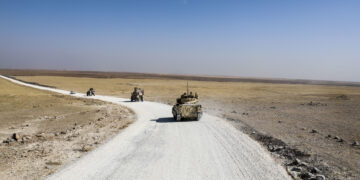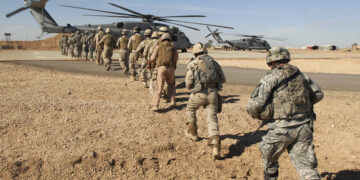November 26, 2024
What Israel and Hezbollah’s ceasefire deal will look like in action

President Joe Biden’s announcement on Tuesday of a ceasefire agreement between Israel and Hezbollah couldn’t have come soon enough for Lebanon, a country in the midst of a yearslong economic crisis and intense political paralysis. The war, which began on Oct. 8, 2023, as a series of hostile exchanges across the Israel-Lebanon border and escalated into a heavy Israeli air and ground campaign in Southern Lebanon, has destroyed entire communities and turned some of Beirut’s districts into a war zone. Hours before the U.S.-brokered deal with Lebanon was announced, Israel struck multiple Hezbollah targets in Beirut in what was no doubt a message to the Lebanese militia: Israel can sustain the conflict for as long as it sees fit.
In the end, Israel and Hezbollah concluded that they could gain more through negotiations than they could on the battlefield. The agreement is a recitation of United Nations Security Council Resolution 1701, which ended a previous monthlong war between the two adversaries more than 17 years ago but was viewed by all the parties involved, Israel in particular, as a lackluster initiative that wasn’t enforced. The current deal seeks to strengthen UNSCR 1701 by adding stronger monitoring. During a 60-day ceasefire, Israeli troops will withdraw from Southern Lebanon, Hezbollah will do the same, and the Lebanese army will re-deploy to the area. Meanwhile, the approximately 60,000 Israelis who have been displaced in northern Israel will get to return home. In effect, the deal allows both Israel and Hezbollah to claim victory; Israeli Prime Minister Benjamin Netanyahu can boast that Hezbollah’s military capacity has been significantly diminished; Hezbollah can claim that its resistance drove Israeli forces out of Lebanon.
Over the long term, the pause in fighting is designed to give Israel and Lebanon the time and space to officially demarcate their shared border. Yet, at the risk of sounding like a pessimist, just getting to that point would be an achievement. A lot can go wrong between now and then. After all, signing an agreement means nothing if it isn’t implemented.
More on Middle East

January 2, 2026

Featuring Rosemary Kelanic
December 29, 2025

Featuring Rosemary Kelanic
December 18, 2025

Featuring Rosemary Kelanic
December 18, 2025
Events on Israel-Hamas





